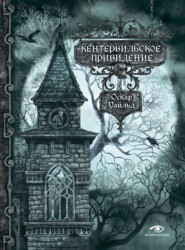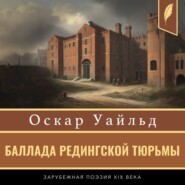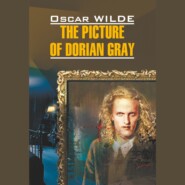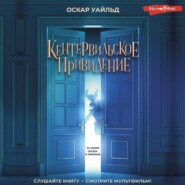По всем вопросам обращайтесь на: info@litportal.ru
(©) 2003-2024.
✖
Essays and Lectures
Настройки чтения
Размер шрифта
Высота строк
Поля
Art never harms itself by keeping aloof from the social problems of the day: rather, by so doing, it more completely realises for us that which we desire. For to most of us the real life is the life we do not lead, and thus, remaining more true to the essence of its own perfection, more jealous of its own unattainable beauty, is less likely to forget form in feeling or to accept the passion of creation as any substitute for the beauty of the created thing.
The artist is indeed the child of his own age, but the present will not be to him a whit more real than the past; for, like the philosopher of the Platonic vision, the poet is the spectator of all time and of all existence. For him no form is obsolete, no subject out of date; rather, whatever of life and passion the world has known, in desert of Judæa or in Arcadian valley, by the rivers of Troy or the rivers of Damascus, in the crowded and hideous streets of a modern city or by the pleasant ways of Camelot – all lies before him like an open scroll, all is still instinct with beautiful life. He will take of it what is salutary for his own spirit, no more; choosing some facts and rejecting others with the calm artistic control of one who is in possession of the secret of beauty.
There is indeed a poetical attitude to be adopted towards all things, but all things are not fit subjects for poetry. Into the secure and sacred house of Beauty the true artist will admit nothing that is harsh or disturbing, nothing that gives pain, nothing that is debatable, nothing about which men argue. He can steep himself, if he wishes, in the discussion of all the social problems of his day, poor-laws and local taxation, free trade and bimetallic currency, and the like; but when he writes on these subjects it will be, as Milton nobly expressed it, with his left hand, in prose and not in verse, in a pamphlet and not in a lyric. This exquisite spirit of artistic choice was not in Byron: Wordsworth had it not. In the work of both these men there is much that we have to reject, much that does not give us that sense of calm and perfect repose which should be the effect of all fine, imaginative work. But in Keats it seemed to have been incarnate, and in his lovely Ode on a Grecian Urn it found its most secure and faultless expression; in the pageant of the Earthly Paradise and the knights and ladies of Burne-Jones it is the one dominant note.
It is to no avail that the Muse of Poetry be called, even by such a clarion note as Whitman’s, to migrate from Greece and Ionia and to placard REMOVED and TO LET on the rocks of the snowy Parnassus. Calliope’s call is not yet closed, nor are the epics of Asia ended; the Sphinx is not yet silent, nor the fountain of Castaly dry. For art is very life itself and knows nothing of death; she is absolute truth and takes no care of fact; she sees (as I remember Mr. Swinburne insisting on at dinner) that Achilles is even now more actual and real than Wellington, not merely more noble and interesting as a type and figure but more positive and real.
Literature must rest always on a principle, and temporal considerations are no principle at all. For to the poet all times and places are one; the stuff he deals with is eternal and eternally the same: no theme is inept, no past or present preferable. The steam whistle will not affright him nor the flutes of Arcadia weary him: for him there is but one time, the artistic moment; but one law, the law of form; but one land, the land of Beauty – a land removed indeed from the real world and yet more sensuous because more enduring; calm, yet with that calm which dwells in the faces of the Greek statues, the calm which comes not from the rejection but from the absorption of passion, the calm which despair and sorrow cannot disturb but intensify only. And so it comes that he who seems to stand most remote from his age is he who mirrors it best, because he has stripped life of what is accidental and transitory, stripped it of that ‘mist of familiarity which makes life obscure to us.’
Those strange, wild-eyed sibyls fixed eternally in the whirlwind of ecstasy, those mighty-limbed and Titan prophets, labouring with the secret of the earth and the burden of mystery, that guard and glorify the chapel of Pope Sixtus at Rome – do they not tell us more of the real spirit of the Italian Renaissance, of the dream of Savonarola and of the sin of Borgia, than all the brawling boors and cooking women of Dutch art can teach us of the real spirit of the history of Holland?
And so in our own day, also, the two most vital tendencies of the nineteenth century – the democratic and pantheistic tendency and the tendency to value life for the sake of art – found their most complete and perfect utterance in the poetry of Shelley and Keats who, to the blind eyes of their own time, seemed to be as wanderers in the wilderness, preachers of vague or unreal things. And I remember once, in talking to Mr. Burne-Jones about modern science, his saying to me, ‘the more materialistic science becomes, the more angels shall I paint: their wings are my protest in favour of the immortality of the soul.’
But these are the intellectual speculations that underlie art. Where in the arts themselves are we to find that breadth of human sympathy which is the condition of all noble work; where in the arts are we to look for what Mazzini would call the social ideas as opposed to the merely personal ideas? By virtue of what claim do I demand for the artist the love and loyalty of the men and women of the world? I think I can answer that.
Whatever spiritual message an artist brings to his aid is a matter for his own soul. He may bring judgment like Michael Angelo or peace like Angelico; he may come with mourning like the great Athenian or with mirth like the singer of Sicily; nor is it for us to do aught but accept his teaching, knowing that we cannot smite the bitter lips of Leopardi into laughter or burden with our discontent Goethe’s serene calm. But for warrant of its truth such message must have the flame of eloquence in the lips that speak it, splendour and glory in the vision that is its witness, being justified by one thing only – the flawless beauty and perfect form of its expression: this indeed being the social idea, being the meaning of joy in art.
Not laughter where none should laugh, nor the calling of peace where there is no peace; not in painting the subject ever, but the pictorial charm only, the wonder of its colour, the satisfying beauty of its design.
You have most of you seen, probably, that great masterpiece of Rubens which hangs in the gallery of Brussels, that swift and wonderful pageant of horse and rider arrested in its most exquisite and fiery moment when the winds are caught in crimson banner and the air lit by the gleam of armour and the flash of plume. Well, that is joy in art, though that golden hillside be trodden by the wounded feet of Christ and it is for the death of the Son of Man that that gorgeous cavalcade is passing.
But this restless modern intellectual spirit of ours is not receptive enough of the sensuous element of art; and so the real influence of the arts is hidden from many of us: only a few, escaping from the tyranny of the soul, have learned the secret of those high hours when thought is not.
And this indeed is the reason of the influence which Eastern art is having on us in Europe, and of the fascination of all Japanese work. While the Western world has been laying on art the intolerable burden of its own intellectual doubts and the spiritual tragedy of its own sorrows, the East has always kept true to art’s primary and pictorial conditions.
In judging of a beautiful statue the æsthetic faculty is absolutely and completely gratified by the splendid curves of those marble lips that are dumb to our complaint, the noble modelling of those limbs that are powerless to help us. In its primary aspect a painting has no more spiritual message or meaning than an exquisite fragment of Venetian glass or a blue tile from the wall of Damascus: it is a beautifully coloured surface, nothing more. The channels by which all noble imaginative work in painting should touch, and do touch the soul, are not those of the truths of life, nor metaphysical truths. But that pictorial charm which does not depend on any literary reminiscence for its effect on the one hand, nor is yet a mere result of communicable technical skill on the other, comes of a certain inventive and creative handling of colour. Nearly always in Dutch painting and often in the works of Giorgione or Titian, it is entirely independent of anything definitely poetical in the subject, a kind of form and choice in workmanship which is itself entirely satisfying, and is (as the Greeks would say) an end in itself.
And so in poetry too, the real poetical quality, the joy of poetry, comes never from the subject but from an inventive handling of rhythmical language, from what Keats called the ‘sensuous life of verse.’ The element of song in the singing accompanied by the profound joy of motion, is so sweet that, while the incomplete lives of ordinary men bring no healing power with them, the thorn-crown of the poet will blossom into roses for our pleasure; for our delight his despair will gild its own thorns, and his pain, like Adonis, be beautiful in its agony; and when the poet’s heart breaks it will break in music.
And health in art – what is that? It has nothing to do with a sane criticism of life. There is more health in Baudelaire than there is in [Kingsley]. Health is the artist’s recognition of the limitations of the form in which he works. It is the honour and the homage which he gives to the material he uses – whether it be language with its glories, or marble or pigment with their glories – knowing that the true brotherhood of the arts consists not in their borrowing one another’s method, but in their producing, each of them by its own individual means, each of them by keeping its objective limits, the same unique artistic delight. The delight is like that given to us by music – for music is the art in which form and matter are always one, the art whose subject cannot be separated from the method of its expression, the art which most completely realises the artistic ideal, and is the condition to which all the other arts are constantly aspiring.
And criticism – what place is that to have in our culture? Well, I think that the first duty of an art critic is to hold his tongue at all times, and upon all subjects: C’est un grand avantage de n’avoir rien fait, mais il ne faut pas en abuser.
It is only through the mystery of creation that one can gain any knowledge of the quality of created things. You have listened to Patience for a hundred nights and you have heard me for one only. It will make, no doubt, that satire more piquant by knowing something about the subject of it, but you must not judge of æstheticism by the satire of Mr. Gilbert. As little should you judge of the strength and splendour of sun or sea by the dust that dances in the beam, or the bubble that breaks on the wave, as take your critic for any sane test of art. For the artists, like the Greek gods, are revealed only to one another, as Emerson says somewhere; their real value and place time only can show. In this respect also omnipotence is with the ages. The true critic addresses not the artist ever but the public only. His work lies with them. Art can never have any other claim but her own perfection: it is for the critic to create for art the social aim, too, by teaching the people the spirit in which they are to approach all artistic work, the love they are to give it, the lesson they are to draw from it.
All these appeals to art to set herself more in harmony with modern progress and civilisation, and to make herself the mouthpiece for the voice of humanity, these appeals to art ‘to have a mission,’ are appeals which should be made to the public. The art which has fulfilled the conditions of beauty has fulfilled all conditions: it is for the critic to teach the people how to find in the calm of such art the highest expression of their own most stormy passions. ‘I have no reverence,’ said Keats, ‘for the public, nor for anything in existence but the Eternal Being, the memory of great men and the principle of Beauty.’
Such then is the principle which I believe to be guiding and underlying our English Renaissance, a Renaissance many-sided and wonderful, productive of strong ambitions and lofty personalities, yet for all its splendid achievements in poetry and in the decorative arts and in painting, for all the increased comeliness and grace of dress, and the furniture of houses and the like, not complete. For there can be no great sculpture without a beautiful national life, and the commercial spirit of England has killed that; no great drama without a noble national life, and the commercial spirit of England has killed that too.
It is not that the flawless serenity of marble cannot bear the burden of the modern intellectual spirit, or become instinct with the fire of romantic passion – the tomb of Duke Lorenzo and the chapel of the Medici show us that – but it is that, as Théophile Gautier used to say, the visible world is dead, le monde visible a disparu.
Nor is it again that the novel has killed the play, as some critics would persuade us – the romantic movement of France shows us that. The work of Balzac and of Hugo grew up side by side together; nay, more, were complementary to each other, though neither of them saw it. While all other forms of poetry may flourish in an ignoble age, the splendid individualism of the lyrist, fed by its own passion, and lit by its own power, may pass as a pillar of fire as well across the desert as across places that are pleasant. It is none the less glorious though no man follow it – nay, by the greater sublimity of its loneliness it may be quickened into loftier utterance and intensified into clearer song. From the mean squalor of the sordid life that limits him, the dreamer or the idyllist may soar on poesy’s viewless wings, may traverse with fawn-skin and spear the moonlit heights of Cithæron though Faun and Bassarid dance there no more. Like Keats he may wander through the old-world forests of Latmos, or stand like Morris on the galley’s deck with the Viking when king and galley have long since passed away. But the drama is the meeting-place of art and life; it deals, as Mazzini said, not merely with man, but with social man, with man in his relation to God and to Humanity. It is the product of a period of great national united energy; it is impossible without a noble public, and belongs to such ages as the age of Elizabeth in London and of Pericles at Athens; it is part of such lofty moral and spiritual ardour as came to Greek after the defeat of the Persian fleet, and to Englishman after the wreck of the Armada of Spain.
Shelley felt how incomplete our movement was in this respect, and has shown in one great tragedy by what terror and pity he would have purified our age; but in spite of The Cenci the drama is one of the artistic forms through which the genius of the England of this century seeks in vain to find outlet and expression. He has had no worthy imitators.
It is rather, perhaps, to you that we should turn to complete and perfect this great movement of ours, for there is something Hellenic in your air and world, something that has a quicker breath of the joy and power of Elizabeth’s England about it than our ancient civilisation can give us. For you, at least, are young; ‘no hungry generations tread you down,’ and the past does not weary you with the intolerable burden of its memories nor mock you with the ruins of a beauty, the secret of whose creation you have lost. That very absence of tradition, which Mr. Ruskin thought would rob your rivers of their laughter and your flowers of their light, may be rather the source of your freedom and your strength.
To speak in literature with the perfect rectitude and insouciance of the movements of animals, and the unimpeachableness of the sentiment of trees in the woods and grass by the roadside, has been defined by one of your poets as a flawless triumph of art. It is a triumph which you above all nations may be destined to achieve. For the voices that have their dwelling in sea and mountain are not the chosen music of Liberty only; other messages are there in the wonder of wind-swept height and the majesty of silent deep – messages that, if you will but listen to them, may yield you the splendour of some new imagination, the marvel of some new beauty.
‘I foresee,’ said Goethe, ‘the dawn of a new literature which all people may claim as their own, for all have contributed to its foundation.’ If, then, this is so, and if the materials for a civilisation as great as that of Europe lie all around you, what profit, you will ask me, will all this study of our poets and painters be to you? I might answer that the intellect can be engaged without direct didactic object on an artistic and historical problem; that the demand of the intellect is merely to feel itself alive; that nothing which has ever interested men or women can cease to be a fit subject for culture.
I might remind you of what all Europe owes to the sorrow of a single Florentine in exile at Verona, or to the love of Petrarch by that little well in Southern France; nay, more, how even in this dull, materialistic age the simple expression of an old man’s simple life, passed away from the clamour of great cities amid the lakes and misty hills of Cumberland, has opened out for England treasures of new joy compared with which the treasures of her luxury are as barren as the sea which she has made her highway, and as bitter as the fire which she would make her slave.
But I think it will bring you something besides this, something that is the knowledge of real strength in art: not that you should imitate the works of these men; but their artistic spirit, their artistic attitude, I think you should absorb that.
For in nations, as in individuals, if the passion for creation be not accompanied by the critical, the æsthetic faculty also, it will be sure to waste its strength aimlessly, failing perhaps in the artistic spirit of choice, or in the mistaking of feeling for form, or in the following of false ideals.
For the various spiritual forms of the imagination have a natural affinity with certain sensuous forms of art – and to discern the qualities of each art, to intensify as well its limitations as its powers of expression, is one of the aims that culture sets before us. It is not an increased moral sense, an increased moral supervision that your literature needs. Indeed, one should never talk of a moral or an immoral poem – poems are either well written or badly written, that is all. And, indeed, any element of morals or implied reference to a standard of good or evil in art is often a sign of a certain incompleteness of vision, often a note of discord in the harmony of an imaginative creation; for all good work aims at a purely artistic effect. ‘We must be careful,’ said Goethe, ‘not to be always looking for culture merely in what is obviously moral. Everything that is great promotes civilisation as soon as we are aware of it.’
But, as in your cities so in your literature, it is a permanent canon and standard of taste, an increased sensibility to beauty (if I may say so) that is lacking. All noble work is not national merely, but universal. The political independence of a nation must not be confused with any intellectual isolation. The spiritual freedom, indeed, your own generous lives and liberal air will give you. From us you will learn the classical restraint of form.
For all great art is delicate art, roughness having very little to do with strength, and harshness very little to do with power. ‘The artist,’ as Mr. Swinburne says, ‘must be perfectly articulate.’
This limitation is for the artist perfect freedom: it is at once the origin and the sign of his strength. So that all the supreme masters of style – Dante, Sophocles, Shakespeare – are the supreme masters of spiritual and intellectual vision also.
Love art for its own sake, and then all things that you need will be added to you.
This devotion to beauty and to the creation of beautiful things is the test of all great civilised nations. Philosophy may teach us to bear with equanimity the misfortunes of our neighbours, and science resolve the moral sense into a secretion of sugar, but art is what makes the life of each citizen a sacrament and not a speculation, art is what makes the life of the whole race immortal.
For beauty is the only thing that time cannot harm. Philosophies fall away like sand, and creeds follow one another like the withered leaves of autumn; but what is beautiful is a joy for all seasons and a possession for all eternity.
Wars and the clash of armies and the meeting of men in battle by trampled field or leaguered city, and the rising of nations there must always be. But I think that art, by creating a common intellectual atmosphere between all countries, might – if it could not overshadow the world with the silver wings of peace – at least make men such brothers that they would not go out to slay one another for the whim or folly of some king or minister, as they do in Europe. Fraternity would come no more with the hands of Cain, nor Liberty betray freedom with the kiss of Anarchy; for national hatreds are always strongest where culture is lowest.
‘How could I?’ said Goethe, when reproached for not writing like Korner against the French. ‘How could I, to whom barbarism and culture alone are of importance, hate a nation which is among the most cultivated of the earth, a nation to which I owe a great part of my own cultivation?’
Mighty empires, too, there must always be as long as personal ambition and the spirit of the age are one, but art at least is the only empire which a nation’s enemies cannot take from her by conquest, but which is taken by submission only. The sovereignty of Greece and Rome is not yet passed away, though the gods of the one be dead and the eagles of the other tired.
And we in our Renaissance are seeking to create a sovereignty that will still be England’s when her yellow leopards have grown weary of wars and the rose of her shield is crimsoned no more with the blood of battle; and you, too, absorbing into the generous heart of a great people this pervading artistic spirit, will create for yourselves such riches as you have never yet created, though your land be a network of railways and your cities the harbours for the galleys of the world.
I know, indeed, that the divine natural prescience of beauty which is the inalienable inheritance of Greek and Italian is not our inheritance. For such an informing and presiding spirit of art to shield us from all harsh and alien influences, we of the Northern races must turn rather to that strained self-consciousness of our age which, as it is the key-note of all our romantic art, must be the source of all or nearly all our culture. I mean that intellectual curiosity of the nineteenth century which is always looking for the secret of the life that still lingers round old and bygone forms of culture. It takes from each what is serviceable for the modern spirit – from Athens its wonder without its worship, from Venice its splendour without its sin. The same spirit is always analysing its own strength and its own weakness, counting what it owes to East and to West, to the olive-trees of Colonus and to the palm-trees of Lebanon, to Gethsemane and to the garden of Proserpine.
And yet the truths of art cannot be taught: they are revealed only, revealed to natures which have made themselves receptive of all beautiful impressions by the study and worship of all beautiful things. And hence the enormous importance given to the decorative arts in our English Renaissance; hence all that marvel of design that comes from the hand of Edward Burne-Jones, all that weaving of tapestry and staining of glass, that beautiful working in clay and metal and wood which we owe to William Morris, the greatest handicraftsman we have had in England since the fourteenth century.
So, in years to come there will be nothing in any man’s house which has not given delight to its maker and does not give delight to its user. The children, like the children of Plato’s perfect city, will grow up ‘in a simple atmosphere of all fair things’ – I quote from the passage in the Republic– ‘a simple atmosphere of all fair things, where beauty, which is the spirit of art, will come on eye and ear like a fresh breath of wind that brings health from a clear upland, and insensibly and gradually draw the child’s soul into harmony with all knowledge and all wisdom, so that he will love what is beautiful and good, and hate what is evil and ugly (for they always go together) long before he knows the reason why; and then when reason comes will kiss her on the cheek as a friend.’
That is what Plato thought decorative art could do for a nation, feeling that the secret not of philosophy merely but of all gracious existence might be externally hidden from any one whose youth had been passed in uncomely and vulgar surroundings, and that the beauty of form and colour even, as he says, in the meanest vessels of the house, will find its way into the inmost places of the soul and lead the boy naturally to look for that divine harmony of spiritual life of which art was to him the material symbol and warrant.
Prelude indeed to all knowledge and all wisdom will this love of beautiful things be for us; yet there are times when wisdom becomes a burden and knowledge is one with sorrow: for as every body has its shadow so every soul has its scepticism. In such dread moments of discord and despair where should we, of this torn and troubled age, turn our steps if not to that secure house of beauty where there is always a little forgetfulness, always a great joy; to that città divina, as the old Italian heresy called it, the divine city where one can stand, though only for a brief moment, apart from the division and terror of the world and the choice of the world too?
This is that consolation des arts which is the key-note of Gautier’s poetry, the secret of modern life foreshadowed – as indeed what in our century is not? – by Goethe. You remember what he said to the German people: ‘Only have the courage,’ he said, ‘to give yourselves up to your impressions, allow yourselves to be delighted, moved, elevated, nay instructed, inspired for something great.’ The courage to give yourselves up to your impressions: yes, that is the secret of the artistic life – for while art has been defined as an escape from the tyranny of the senses, it is an escape rather from the tyranny of the soul. But only to those who worship her above all things does she ever reveal her true treasure: else will she be as powerless to aid you as the mutilated Venus of the Louvre was before the romantic but sceptical nature of Heine.
And indeed I think it would be impossible to overrate the gain that might follow if we had about us only what gave pleasure to the maker of it and gives pleasure to its user, that being the simplest of all rules about decoration. One thing, at least, I think it would do for us: there is no surer test of a great country than how near it stands to its own poets; but between the singers of our day and the workers to whom they would sing there seems to be an ever-widening and dividing chasm, a chasm which slander and mockery cannot traverse, but which is spanned by the luminous wings of love.
And of such love I think that the abiding presence in our houses of noble imaginative work would be the surest seed and preparation. I do not mean merely as regards that direct literary expression of art by which, from the little red-and-black cruse of oil or wine, a Greek boy could learn of the lionlike splendour of Achilles, of the strength of Hector and the beauty of Paris and the wonder of Helen, long before he stood and listened in crowded market-place or in theatre of marble; or by which an Italian child of the fifteenth century could know of the chastity of Lucrece and the death of Camilla from carven doorway and from painted chest. For the good we get from art is not what we learn from it; it is what we become through it. Its real influence will be in giving the mind that enthusiasm which is the secret of Hellenism, accustoming it to demand from art all that art can do in rearranging the facts of common life for us – whether it be by giving the most spiritual interpretation of one’s own moments of highest passion or the most sensuous expression of those thoughts that are the farthest removed from sense; in accustoming it to love the things of the imagination for their own sake, and to desire beauty and grace in all things. For he who does not love art in all things does not love it at all, and he who does not need art in all things does not need it at all.
I will not dwell here on what I am sure has delighted you all in our great Gothic cathedrals. I mean how the artist of that time, handicraftsman himself in stone or glass, found the best motives for his art, always ready for his hand and always beautiful, in the daily work of the artificers he saw around him – as in those lovely windows of Chartres – where the dyer dips in the vat and the potter sits at the wheel, and the weaver stands at the loom: real manufacturers these, workers with the hand, and entirely delightful to look at, not like the smug and vapid shopman of our time, who knows nothing of the web or vase he sells, except that he is charging you double its value and thinking you a fool for buying it. Nor can I but just note, in passing, the immense influence the decorative work of Greece and Italy had on its artists, the one teaching the sculptor that restraining influence of design which is the glory of the Parthenon, the other keeping painting always true to its primary, pictorial condition of noble colour which is the secret of the school of Venice; for I wish rather, in this lecture at least, to dwell on the effect that decorative art has on human life – on its social not its purely artistic effect.
There are two kinds of men in the world, two great creeds, two different forms of natures: men to whom the end of life is action, and men to whom the end of life is thought. As regards the latter, who seek for experience itself and not for the fruits of experience, who must burn always with one of the passions of this fiery-coloured world, who find life interesting not for its secret but for its situations, for its pulsations and not for its purpose; the passion for beauty engendered by the decorative arts will be to them more satisfying than any political or religious enthusiasm, any enthusiasm for humanity, any ecstasy or sorrow for love. For art comes to one professing primarily to give nothing but the highest quality to one’s moments, and for those moments’ sake. So far for those to whom the end of life is thought. As regards the others, who hold that life is inseparable from labour, to them should this movement be specially dear: for, if our days are barren without industry, industry without art is barbarism.

















